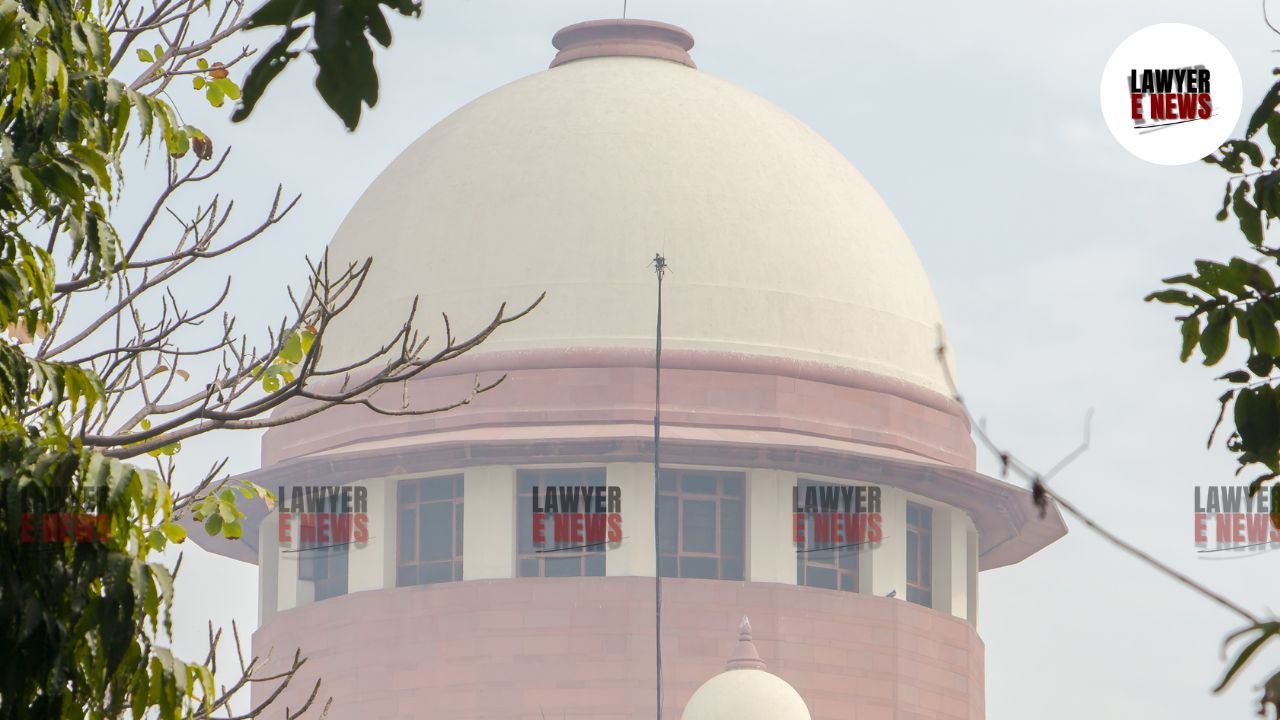-
by Admin
15 February 2026 5:35 AM



Stay on Coercive Action Extended Only Until Filing of Petitions in High Courts, ED Proceedings Revived Due to Lack of Hearing. On September 23, 2024, the Supreme Court of India, in Gagan Banga and Another v. The State of West Bengal and Others, partially modified and recalled its previous interim order dated July 4, 2023. The case revolved around several FIRs filed against financial institutions by defaulting borrowers, accusing them of criminal conduct in what were essentially civil disputes. The Court clarified that the stay on coercive actions would only continue until the petitioners filed their challenges before the relevant High Courts. Additionally, the Court recalled its order affecting the Enforcement Directorate (ED), which had not been heard before the prior directions were issued.
"No Adverse Orders Without a Hearing": Supreme Court Modifies Earlier Decision to Correct Procedural Irregularity
The Supreme Court recalled its previous order as it violated principles of natural justice by not granting the Enforcement Directorate a hearing before passing adverse directions.
The case was initiated by Gagan Banga and Indiabulls Housing Finance Limited, under Article 32 of the Constitution, seeking the quashing of FIRs filed by disgruntled borrowers in various states. The petitioners claimed that the criminal law was being misused to give a "criminal color to civil disputes" involving defaulted loans. They also sought a stay on proceedings and requested guidelines to protect financial institutions from similar actions in the future.
On April 28, 2023, the Supreme Court granted an interim stay on the proceedings of three FIRs filed against the petitioners in West Bengal, Uttar Pradesh, and Delhi. On July 4, 2023, the Court issued a final order, directing the petitioners to challenge the FIRs in the respective High Courts and extended the stay on coercive actions until the final disposal of the cases.
Later, the Enforcement Directorate (ED) and a private respondent, Amit Walia, sought modification and recall of the July 4 order. The ED argued that it had not been heard before the Court issued directions impacting its ongoing investigation under ECIR No. ECIR/HIU-1/06/2023.
Misuse of Criminal Law in Civil Disputes: The primary issue was the alleged misuse of criminal law by defaulting borrowers, who filed FIRs against financial institutions to settle civil disputes. The petitioners contended that such actions violated their fundamental rights under Articles 14, 19, and 21 of the Constitution.
Violation of Natural Justice: The Enforcement Directorate argued that it had been denied a fair hearing before the Supreme Court issued adverse directions in the July 4, 2023, order. The Court accepted this argument, recalling its previous order in relation to the ED's proceedings.
"No adverse orders should be passed against a party without providing them an opportunity to be heard. The Enforcement Directorate was not given a hearing before adverse directions were issued." [Paras 14-15]
Principles Governing Recall of Orders: The Court discussed its inherent powers to recall or modify orders to prevent injustice or abuse of process. While ordinarily final orders are not subject to recall or modification, the Court emphasized that exceptions could be made when principles of natural justice are violated or when necessary to prevent the abuse of process.
"If an order is pronounced without giving an opportunity of hearing to a party affected by it, inherent powers of the Court can be exercised to recall such an order." [Para 14]
Limitation of Stay on Coercive Actions: The Court modified its earlier order, clarifying that the stay on coercive measures against the petitioners (i.e., financial institutions and their officers) would extend only until the filing of petitions before the respective High Courts. The High Courts were given full discretion to decide the cases on their own merits, without being influenced by any observations made in the Supreme Court's earlier order.
"The High Courts are to decide the cases on their own merits, and the interim protection for the petitioners ends upon filing of their respective petitions before the High Courts." [Para 18]
Recall of Order Concerning the Enforcement Directorate: The Court acknowledged that the Enforcement Directorate was added as a respondent after the July 4 order had already been issued, and no notice had been served to them before the issuance of adverse directions. Therefore, the Court recalled the order to the extent it affected the ED's ongoing investigation under ECIR No. ECIR/HIU-1/06/2023, leaving it open for the High Court of Allahabad to decide the matter on its merits.
"The order dated 04.07.2023, to the extent it affects the Enforcement Directorate’s proceedings, was recalled." [Para 18]
High Courts to Adjudicate Without Influence: The Court noted that its earlier order, if left unmodified, could be misinterpreted as binding on the High Courts, potentially influencing their adjudication. To prevent any such influence, the Court clarified that the High Courts should consider the matters before them independently.
"Such directions can be misconstrued by the High Courts to be observations by this Court on the merits of the matter, thereby influencing the adjudication of the case." [Para 18]
The Supreme Court, in this significant ruling, partially recalled and modified its interim order from July 4, 2023, emphasizing the importance of ensuring that High Courts are not unduly influenced by interim observations. The stay on coercive actions against financial institutions is now limited to the period until the filing of petitions before the High Courts, which have been directed to decide the cases on their own merits. Additionally, the order concerning the Enforcement Directorate’s investigation was recalled due to a violation of natural justice principles.
Date of Decision: September 23, 2024
Gagan Banga and Another v. The State of West Bengal and Others
